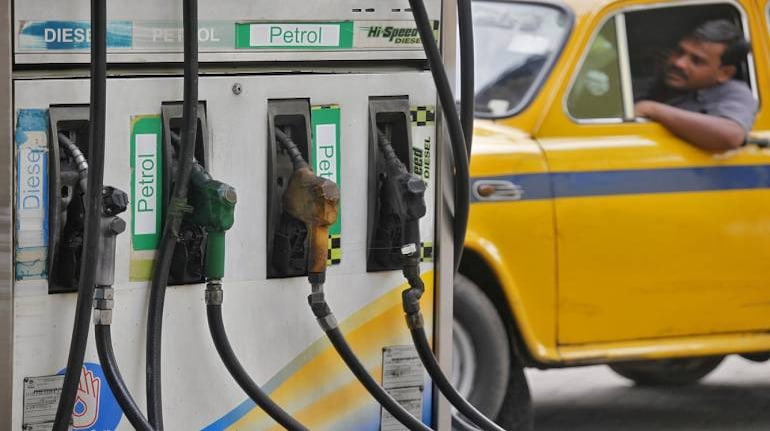



A government official, while speaking to CNBC-TV18, said the oil marketing companies (OMCs) may suffer losses owing to a pause in retail fuel rates for the last 40 consecutive days across the country, despite the rising trend in international crude prices.
The official, however, was not sure when petrol and diesel price hikes will resume bridging the price gap created by international crude oil prices that are trading past $100 a barrel.
According to the official, the current price revision standstill is not sustainable.
"Halting retail price revision hurting for OMCs. Want refiners to make a profit. Pitching for a balanced solution, not sure when fuel price will resume," the official said.
The state-run refiners – Indian Oil Corporation (IOC), Hindustan Petroleum Corporation Ltd (HPCL) and Bharat Petroleum Corporation Limited (BPCL) – have kept petrol and diesel prices frozen since April 6 and they have not passed on the increase in global crude oil prices to consumers.
Fuel prices were last hiked on April 6 by 80 paise a litre each. Petrol and diesel rates in the March 23 to April 6 period increased by Rs 10 per litre each via 14 revisions. From November 3, 2021, until March 22, 2022, there had been a freeze on fuel prices after the central government's excise duty cut of Rs 5 a litre on petrol and Rs 10 a litre on diesel, and many states also lowered state tax.
A report issued on April 12 stated that the current domestic retail fuel prices are benchmarked to international oil prices at $95 per barrel.
On May 16, Brent crude traded at $111.37 a barrel, while US West Texas Intermediate (WTI) crude rose 2 cents, or less than 0.1 percent, to $110.51 a barrel.
The official also observed that some private retailers on account of incurring losses due to the government not allowing them to increase the prices of fuel have shied away from selling diesel.
He said, "Most of the diesel is being imported by Europe and Saudi Arabia. Diesel in the domestic market is being sold by PSUs, and private retailers are shying away. Private companies not selling diesel due to losses."
India imports 80 percent of its oil, the majority of which comes from the Middle East and the United States. 2 percent of supplies are imported from Russia.
Also Read: If oil remains above $110 a barrel, burden will be shared by govt, OMCs and consumers: CEA
On asked whether the government could start offering subsidies on LPG cylinders, the official did not signal a revival of the stalled subsidy scheme for affordable cooking gas - liquefied petroleum gas (LPG), initiated during 2016-2017.
"No decision taken on resuming LPG subsidy. We have not even utilised the budgeted Rs 5,500 crore subsidy. Resumption of LPG subsidy is a political call," the official said.
Non-subsidised LPG now costs Rs 999.50 per 14.2-kg cylinder in Delhi. Non-subsidised cooking gas is the one that consumers buy after exhausting their quota of 12 cylinders at subsidised or below-market rates. In the absence of a subsidy, consumers will have to bear for the entire cost increase in LPG prices. The government removed the LPG subsidy in May 2020.
Discover the latest Business News, Sensex, and Nifty updates. Obtain Personal Finance insights, tax queries, and expert opinions on Moneycontrol or download the Moneycontrol App to stay updated!
Find the best of Al News in one place, specially curated for you every weekend.
Stay on top of the latest tech trends and biggest startup news.